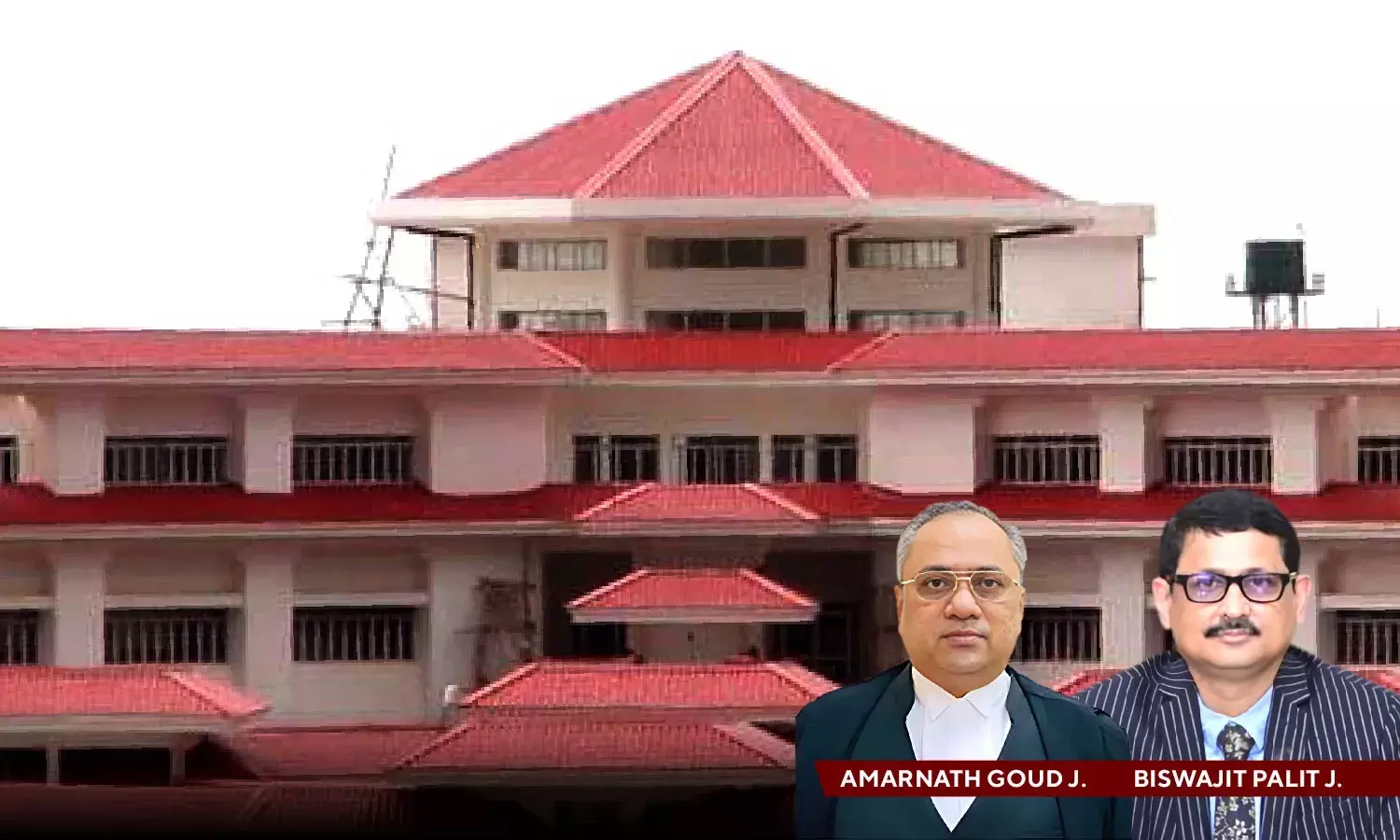'Doubtful Of Temporary Insanity': Tripura HC Refuses To Confirm Death Sentence To Man Accused Of Murdering His Minor Daughters

The Tripura High Court refused to confirm death sentence awarded to a man convicted for murdering his daughters, brother and some others.
The court observed that in death-penalty cases, it is not just necessary to punish the accused person, but also to think in terms of reformatory measures.
In that context, the Bench of Justice T Amarnath Goud and Justice Biswajit Palit observed that, "it is only an act of God to give life to a human. In the absence of which, a person cannot take away someone's life. The act the convict has taken away the several lives. Though this Court is empowered to impose capital punishment, it should be exercised in the rarest of the rare case and if it feels that the accused person if released would be a threat to society. In view of a developed ideology in Criminal Jurisprudence where a culprit is to be tried and punished, but also the circumstance needs to be examined and analyzed by the Court. It also becomes immensely necessary that apart from not only to punish the accused-person, but also to think in terms of reformatory measures. The sword of justice given to a Judge has to be exercise with utmost responsibility and judiciously considering the reforms. In the present days, the law has more focused on the reformatory side."
In light of the same, it was held that, "the death sentence of the convict is converted into life imprisonment till he breathes his last in jail without any benefit of remission."
Counsel HK Bhowmik, along with others, appeared for the appellant, while Public Prosecutor Raju Datta appeared for the respondents.
In this case, the Court was hearing a Death Sentence Reference Case and appeal under Section 374 of CrPC challenging the November 23, 2022, judgment by the Sessions Judge, Khowai, Tripura. The Trial Court had convicted the accused-appellant under Section 307 of IPC, sentencing him to 10 years of Rigorous Imprisonment and a fine of Rs.10,000. Additionally, he was convicted under Section 302 of IPC, receiving a death sentence and directed to pay Rs.5,000 compensation to each victim.
The appellant's counsel argued his unsound mind, pointing out his abnormal behaviour after murdering his daughters. They claimed the Trial Court overlooked the sequence of the offence, emphasizing that a person of sound mind wouldn't act in such a manner. The appellant, they stated, became abnormal, unaware of the consequences of his actions.
The Court observed that, "This Court on the ground of doubtful of temporary Insanity is not considering to grant acquittal to the convict. But at the same time, there are laches on the part of the police authorities and also the investigating officer in not examining the crime delinquently from all aspects when this is the rarest of the rare case."
Converting the death penalty to one of life imprisonment, the Court also ordered that the appellant must be kept in isolation, while observing that, "If the convict-appellant is allowed to socialize with the inmates in the jail, there is every possibility of his temporary insanity status of mind might strike back and assuming which has happened on the fateful day, again on any day and would cause a threat to the inmates."
Appearances:
Appellant: Counsels HK Bhowmik, NG Debnath, A Acharjee
Respondents: Public Prosecutor Raju Datta
Cause Title: The Sessions Judge, Khowai District, Tripura vs The State of Tripura & Anr.
Click here to read/download the Judgment

